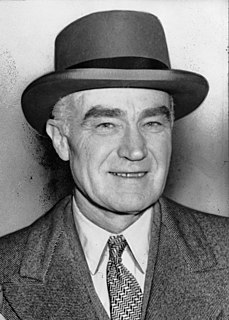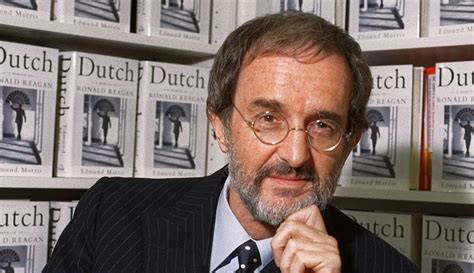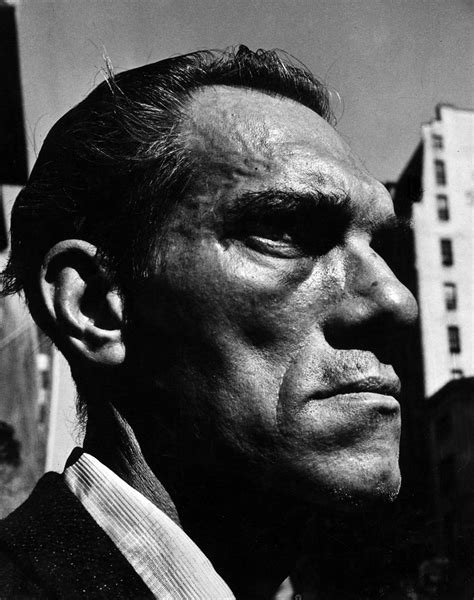A Quote by Stephen Covey
Each of us tends to think we see things as they are, that we are objective. But this is not the case. We see the world, not as it is, but as we are - or as we are conditioned to see it.
Related Quotes
THE FATHER: But don't you see that the whole trouble lies here? In words, words. Each one of us has within him a whole world of things, each man of us his own special world. And how can we ever come to an understanding if I put in the words I utter the sense and value of things as I see them; while you who listen to me must inevitably translate them according to the conception of things each one of you has within himself. We think we understand each other, but we never really do.
I look upon ourselves as partners in all of this, and that each of us contributes and does what he can do best. And so I see not a top rung and a bottom rung - I see all this horizontally - and I see this as part of a matrix. And I see every human being as having a purpose, a destiny, if you like - the destiny that exists in each of us - and find ways and means to provide such opportunities for everyone.
To see life. To see the world. To watch the faces of the poor, and the gestures of the proud. To see strange things. Machines, armies, multitudes, and shadows in the jungle. To see, and to take pleasure in seeing. To see and be instructed. To see and be amazed. (Describing the powers of photography; written for the launch of LIFE Magazine, 1936.)
I think the reason that the Trump economic agenda is beneficial is, he is doing the right things. He wants to see growth, he wants to see to lower taxes, he wants to see this cash pile sitting outside the US return to the US. All of these things I think will be good for the US economy, and as I've said, if the US economy grows, the global economy benefits hugely.
You see so many beautiful things happening in this world, and you see so many things that make you want to cry and crawl under a rock. But there's an underlying feeling of magic and mystery in everything that I live for. I feel like all of my art is trying to get people to see that underlying, subtle energy that lives within everything that we see and what we don't see in this world.
I’m aware of the- the fact that people elsewhere in the world think differently from us. I can sort of see us, us Americans with their eyes. And not all that I see is- is attractive. I see an insular people who are- are insensitive to foreign sensibilities, who are lazy, obese, complacent and increasingly perplexed as to why we are losing our place in the world to people who are more dynamic than us and more disciplined
Drawing is what you see of the world, truly see...And sometimes what you see is so deep in your head you're not even sure of what you're seeing. But when it's down there on paper, and you look at it, really look, you'll see the way things are...that's the world, isn't it? You have to keep looking to find the truth.
The more often we see the things around us - even the beautiful and wonderful things - the more they become invisible to us. That is why we often take for granted the beauty of this world: the flowers, the trees, the birds, the clouds - even those we love. Because we see things so often, we see them less and less.



































